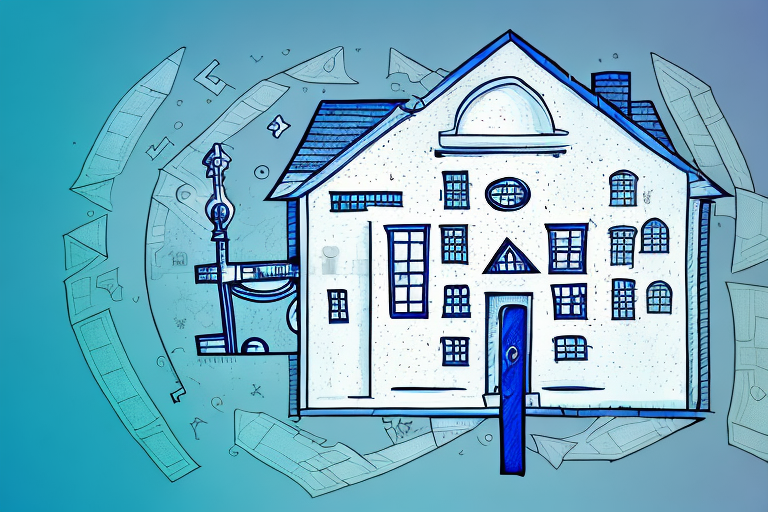If you are a first-time homebuyer in Sydney, 2023 is a great year to take the plunge. With the current state of the property market, you have a good chance of finding an affordable property that suits your needs. However, before you start your search, it is essential to understand the market and prepare yourself financially. In this article, we will provide you with some essential tips to help you navigate the home-buying process successfully.
Understanding the Sydney Property Market in 2023
Before you start your search, it is crucial to understand the state of the Sydney property market in 2023. The market has been on an upward trend in recent years, but it is currently stabilizing. If you are planning to buy a property in Sydney, it is essential to keep track of the market trends and predictions.
Key Market Trends and Predictions
According to experts, the property market in Sydney in 2023 will be characterized by increased supply and subdued demand, which will lower property prices. This trend is expected to continue for the next few years, as more properties are being built to meet the growing demand. The increase in supply is also expected to lead to more competition among sellers, which will further drive down prices.
Another trend that is expected to impact the Sydney property market in 2023 is the decrease in the number of investors in the market. This is due to tighter lending regulations and lower rental yields. The Australian Prudential Regulation Authority (APRA) has introduced stricter regulations on lending to property investors, which has made it harder for them to secure loans. Additionally, the low rental yields have made it less attractive for investors to buy properties in Sydney.
Popular Suburbs for First-Time Homebuyers
If you are a first-time homebuyer in Sydney, some suburbs are more suitable for you than others. Popular suburbs for first-time buyers include Parramatta, Hornsby, Bankstown, and Blacktown. These suburbs offer affordable properties and easy access to amenities such as schools, transportation, and shopping centers. Parramatta, in particular, is a popular choice for first-time buyers due to its proximity to the city and its vibrant cultural scene.
Another popular suburb for first-time buyers is Hornsby, which is known for its leafy streets and family-friendly atmosphere. The suburb has a range of properties, from apartments to large family homes, and is well-connected to the city via train and bus. Bankstown and Blacktown are also popular choices for first-time buyers, with a range of affordable properties and easy access to amenities.
Impact of Government Policies on the Property Market
Government policies can significantly affect the property market. For instance, the First Home Loan Deposit Scheme and the First Home Owner Grant provide incentives for first-time homebuyers. The First Home Loan Deposit Scheme allows first-time buyers to purchase a property with a deposit as low as 5%, while the First Home Owner Grant provides a one-off payment to eligible buyers.
Additionally, the government’s infrastructure projects, such as the Western Sydney Airport and the North-South Rail Link, can increase property values in the affected areas. The Western Sydney Airport, which is set to open in 2026, is expected to create thousands of jobs and attract new businesses to the area. This is likely to increase demand for properties in the surrounding suburbs, such as Badgerys Creek and St Marys. The North-South Rail Link, which is currently under construction, will connect the western suburbs to the city and is expected to improve access to jobs and amenities.
Overall, the Sydney property market in 2023 is expected to be characterized by increased supply, lower demand, and lower prices. First-time buyers should consider suburbs such as Parramatta, Hornsby, Bankstown, and Blacktown, which offer affordable properties and easy access to amenities. Government policies, such as the First Home Loan Deposit Scheme and the First Home Owner Grant, can provide incentives for first-time buyers, while infrastructure projects such as the Western Sydney Airport and the North-South Rail Link can increase property values in the affected areas.
Preparing Your Finances for Homeownership
Buying a home is a significant investment, and it’s essential to prepare your finances before embarking on this journey. Here are some additional tips to help you get started.
Saving for a Deposit
Saving for a deposit is one of the most crucial steps in preparing for homeownership. While most lenders require a deposit of at least 20% of the property’s value, it is always a good idea to save more if possible. This will not only increase your chances of getting approved for a mortgage but also reduce your monthly repayments.
One way to save for a deposit is to set up a separate savings account specifically for this purpose. You can also take advantage of government schemes such as the First Home Loan Deposit Scheme or the First Home Super Saver Scheme to reduce the deposit amount required. These schemes can help you save money on mortgage insurance and other upfront costs.
Understanding Your Borrowing Capacity
Before you start your search, it is crucial to determine how much you can borrow. This will help you narrow down your search to properties that are within your budget. Factors such as your income, expenses, credit history, and the property’s value will affect your borrowing capacity.
You can use online calculators or consult a mortgage broker to get an estimate of your borrowing capacity. A mortgage broker can also provide you with more personalized advice based on your individual circumstances.
First-Time Homebuyer Grants and Incentives
If you’re a first-time homebuyer, you may be eligible for government incentives and grants. In addition to the First Home Owner Grant, some states and territories offer stamp duty concessions or other incentives to help first-time buyers get into the property market.
It’s worth checking with your state or local government to see what incentives are available to you. These incentives can help reduce the upfront costs of buying a home and make homeownership more affordable.
Budgeting for Ongoing Costs
Buying a property comes with ongoing costs that you need to factor into your budget. These costs include insurance, maintenance, and utilities. It’s essential to plan for these costs upfront to avoid any surprises down the track.
When budgeting for ongoing costs, it’s a good idea to overestimate rather than underestimate. This will give you a buffer in case of unexpected expenses. You can also speak to your real estate agent or property manager to get an idea of what these costs might be for the specific property you’re interested in.
By following these tips, you’ll be well on your way to preparing your finances for homeownership. Remember, buying a home is a significant investment, so take your time, do your research, and seek professional advice if you need it.
Finding the Right Property for You
Once you have prepared your finances, the next step is to find the right property that meets your needs and preferences. Here are some tips to help you with your search.
Determining Your Property Needs and Preferences
Before you start your search, it is crucial to determine your property needs and preferences. Factors such as the property’s size, location, and amenities will affect your decision.
It is important to consider your current and future needs when determining your property preferences. For example, if you are planning to start a family, you may want a property with more bedrooms or a backyard for your children to play in. On the other hand, if you are a young professional, you may prefer a property with a home office or easy access to public transportation.
It is also important to consider your lifestyle when determining your property preferences. If you enjoy entertaining guests, you may want a property with a large living room or outdoor space. If you are an avid cook, you may prefer a property with a spacious kitchen and modern appliances.
Researching and Comparing Properties
Once you have determined your needs, you can start researching and comparing properties. Online property portals, real estate agents, and social media can provide you with information about available properties. It is essential to compare the properties based on your needs and budget to find the best fit.
When researching and comparing properties, it is important to consider factors such as the property’s location, condition, and price. You may also want to consider the neighborhood’s safety, proximity to schools and shopping centers, and public transportation options.
It is also important to consider the property’s potential for appreciation. A property in a desirable location or with unique features may appreciate in value over time, making it a good investment.
Attending Open Houses and Inspections
After shortlisting potential properties, it is important to attend open houses and inspections. This will give you a chance to inspect the property’s condition, location, and amenities in person and ask any questions you may have.
During open houses and inspections, it is important to pay attention to details such as the property’s layout, natural light, and storage space. You may also want to check for any signs of wear and tear, such as cracks in the walls or leaky faucets.
It is also a good idea to walk around the neighborhood to get a feel for the area. You may want to check for noise levels, traffic, and the overall condition of the neighborhood.
Working with a Real Estate Agent
Working with a real estate agent can make the home-buying process smoother. Agents can provide you with expert advice, negotiate on your behalf, and guide you through the legal aspects of buying a property.
When choosing a real estate agent, it is important to consider factors such as their experience, knowledge of the local market, and communication skills. You may also want to ask for referrals from friends and family or read online reviews to help you make your decision.
A good real estate agent can help you find properties that meet your needs and budget, and can also assist you with the negotiation and closing process. They can also provide you with valuable advice on financing options and legal requirements.
Navigating the Homebuying Process
After finding your ideal property, the next step is to navigate the home-buying process successfully.
Understanding the Legal Aspects of Buying a Property
Buying a property involves legal processes such as conveyancing and contract signing. It is essential to seek legal advice to understand your rights and obligations as a buyer.
Making an Offer and Negotiating
Once you have found a property you like, you can make an offer. It is essential to consider the property’s value, other offers, and your finances when making your offer. Negotiating with the seller can also help you get a better deal.
Securing a Mortgage
After making an offer, you can secure a mortgage to finance your purchase. You will need to provide your lender with financial and property information to get approval for your loan.
Pre-settlement Inspections and Finalizing the Purchase
Before finalizing the purchase, it is essential to inspect the property again and ensure that everything is in order. After finalizing the purchase, you will need to pay the balance of the purchase price, sign the transfer documents, and register the property in your name.
Conclusion
The home-buying process can be overwhelming, especially for first-time buyers. However, with proper preparation and guidance, you can successfully navigate the process and achieve your dream of homeownership. Use the tips provided in this article to make your home-buying journey a success in Sydney’s 2023 property market.
If you are interested in the above, feel free to reach out to a Henderson Sydney buyers agent today for more information.







